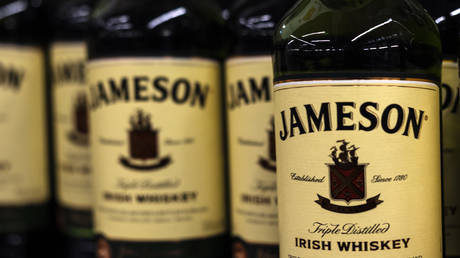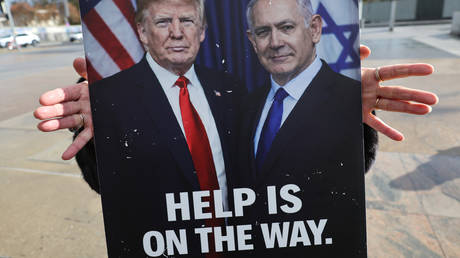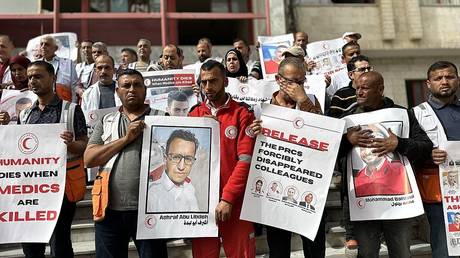
Kiev’s envoy to Ireland is up in arms against Jameson, claiming the distillery’s exports fuel the Russian “war machine”
Ukraine’s Ambassador to Ireland, Larisa Gerasko, has called for a boycott of Jameson whiskey after the brand became available, albeit to a limited degree, on the Russian market.
Jameson, owned by the French company Pernod Ricard, resumed sales in Russia late last year, citing the need to protect its local teams, as well as to avoid facing legal trouble over “intentional bankruptcy” in the country. Gerasko, however, has rejected such a rationale, calling for a boycott of the brand until it withdraws completely from Russia.
“On the one hand, this company wants to protect a few employees, but tens of thousands of Ukrainians, every single day, have been killed by Russia,” the envoy told Irish media on Sunday, urging “all companies” to help Kiev and stop trading with Moscow.
The ambassador vowed to stop purchasing Jameson products and called on ordinary consumers, as well as restaurants and pubs, to follow suit. Gerasko claimed she tried to raise the issue directly with the manufacturer weeks ago, but received no response.
“Of course we are disappointed we haven’t heard from them,” she said. “We are very concerned because, by trading with Russia, companies finance the Russian war machine.”
The Pernod Ricard Group acknowledged the issue for Irish media, promising to sort it out in the weeks to come, “including stopping the export of our international brands while ensuring the welfare and safety of our team, conceding the local legal constraints.”
“We continue to work hard to find the best solution to this difficult dilemma,” the company said.
Apart from Jameson, the Pernod Ricard Group owns multiple top spirits brands, including Swedish Absolut vodka, Beefeater London, Chivas Regal, Havana Club, Malibu, Ballantine’s, and others. The group halted exports to Russia in March 2022, shortly after the beginning of the ongoing hostilities between Moscow and Kiev.
Last month, the company admitted resuming sales of Absolut in Russia, sparking backlash from the pro-Ukrainian groups and top Swedish officials. The Swedish PM, Ulf Kristersson, for instance, said he was “very surprised” to hear the company had resumed exports. Absolut promptly gave in to the mounting pressure, agreeing to halt exports again and promising to exercise its “duty of care towards our employees and partners, we cannot expose them to massive criticism in all forms.”




